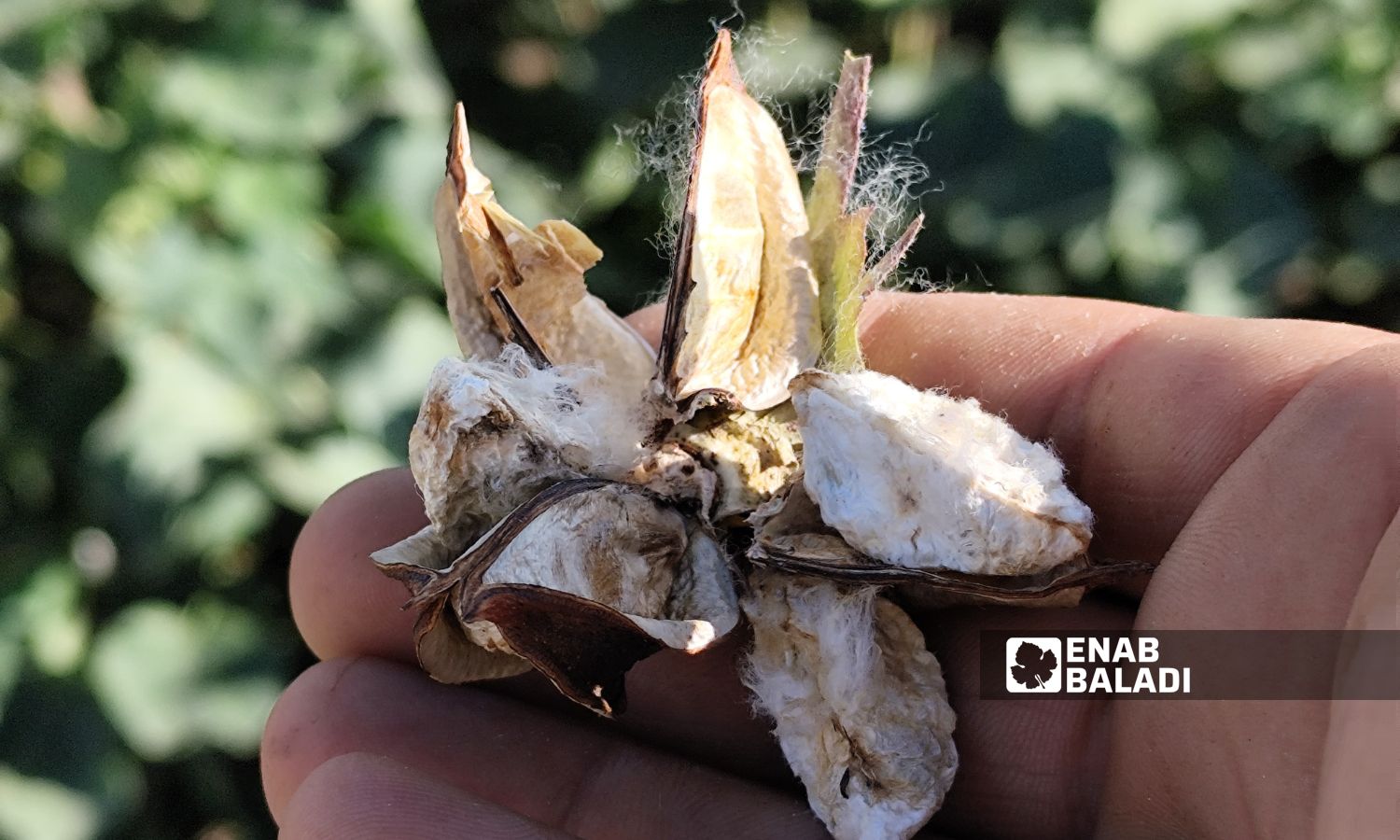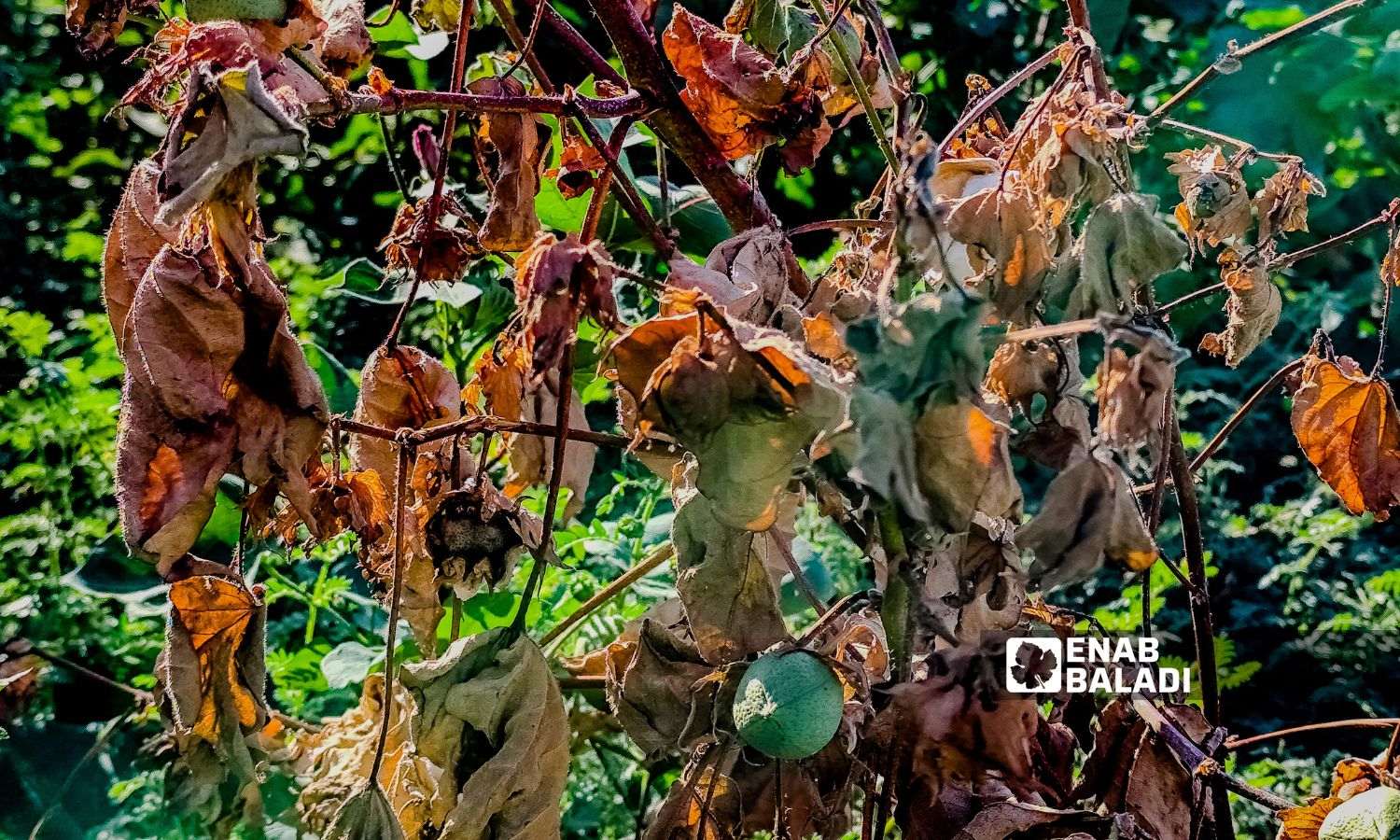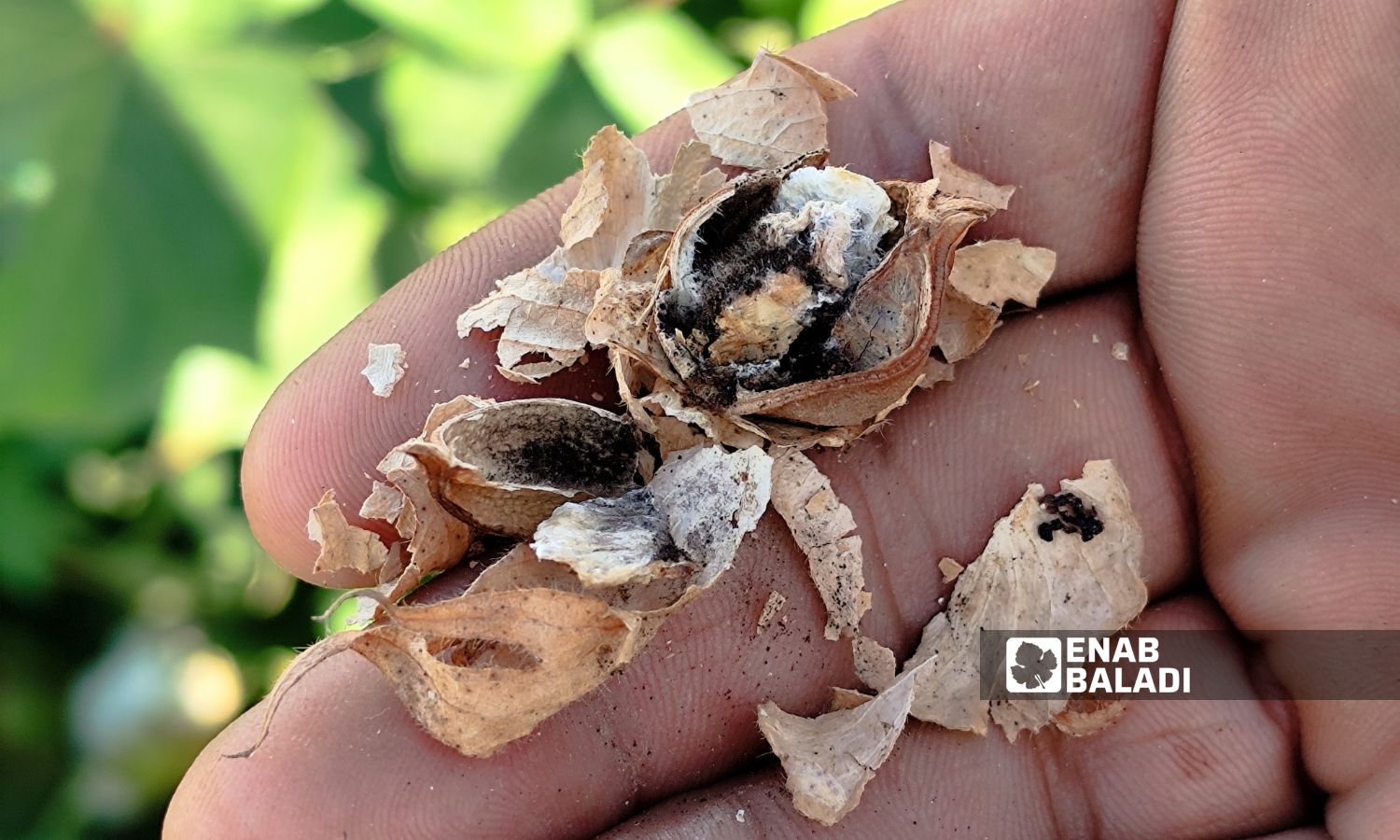



The cotton bollworm, known as the cotton worm, threatens this year’s cotton crop in Ras al-Ain in northwestern al-Hasakah, creating fears among farmers of financial losses.
This tiny insect feeds on the leaves and fruits of the cotton, affecting its growth and quality. Its spread is attributed to several factors, including weather fluctuations that have provided an ideal environment for its reproduction.
Farmer Mohammed al-Abdullah sprayed his cotton crop for the second time this year in his field in Hamid village in Ras al-Ain after discovering the presence of the cotton worm, attempting to save the crop. He stated that he noticed the worm’s spread about a month ago.
He told Enab Baladi that the cotton worm caused the leaves of the shrubs to be eaten and affected the flowers during the pollination period, noting that the cotton was affected by 50% due to this damage.
Despite spraying the crop twice, the worm noticeably affected the crop’s quality and will impact the quantity of production during harvest, according to the farmer.
Another farmer from Aziziyah village, Nasser al-Ali, said that the high temperatures contributed to the rapid spread of the worm, leading to the dropping of cotton pods (balls).
He added to Enab Baladi that damage affected the crop despite his efforts to mitigate the damage by using pesticides.
Most farmers considered that the drugs were not effective enough to combat the spread of the worm in their fields, compelling them to use larger amounts of pesticides or try other types to no avail. The continued spread of the worm increased the financial cost.

The cotton worm has damaged the crop in Ras al-Ain in northwestern al-Hasakah – September 2, 2024 (Enab Baladi)
Agricultural engineer Samer al-Hussein spoke to Enab Baladi about the spread of the cotton bollworm in cotton fields, explaining that the drugs used were not effective due to the quick resistance of the worm to pesticides.
He said that the timing of pesticide spraying was not appropriate, as it should be applied during the early stages of the larvae to achieve the best results.
He added that the high temperatures accelerated the worm’s growth and reduced the effectiveness of pesticides due to their quick evaporation.
He pointed out the importance of adopting integrated control programs that include using specialized pesticides applied at the appropriate times and the necessity of taking preventive measures, such as adopting good agricultural practices and continuous field monitoring to maintain crop health.

The cotton worm has damaged the crop in Ras al-Ain in northwestern al-Hasakah – September 2, 2024 (Enab Baladi)
The cotton crop is one of the main agricultural activities in Ras al-Ain, where most residents rely on agriculture and then livestock farming as a source of income.
Omar Hammoud, the head of the agriculture and livestock office in the local council, told Enab Baladi that the area of cultivated land in Ras al-Ain reaches about 27,000 dunums, which is lower compared to previous years due to farmers turning to other crops because of the difficulty in marketing the crop and traders’ control over its prices.
He explained that approximately 20% of the cotton crop in the region is affected by the cotton bollworm, and the damage is not significant, adding that treatment requires following preventive methods from the beginning of planting to reduce infection.
He emphasized the importance of avoiding random treatments without consulting an agricultural engineer or the agriculture directorate in the local council, as some drugs might not be effective and could increase crop damage.
The agricultural sector in Ras al-Ain and its neighbor Tal Abyad suffers from desertification that has hit hundreds of thousands of dunums, along with lands affected by subsidence and collapses that have put them out of service. This situation is exacerbated by economic factors such as the high costs of reclamation and water extraction, and human factors such as groundwater depletion and neglect by responsible authorities, marginalizing the soil, farmer, and crop.
According to exclusive figures obtained by Enab Baladi, the agricultural area in Ras al-Ain is 1.27 million acres, of which only 200,000 acres are cultivated. The area of rain-fed lands exceeds 420,000 dunums, which have become desertified due to water level drops and are considered to have low or almost non-existent production.
The agricultural area in Tal Abyad is 1.19 million acres, with the irrigated area cultivated being 310,000 acres, while the rain-fed cultivated area is 431,000 dunums.
Agricultural crops in Ras al-Ain face difficulties in marketing, traders’ control, and the absence of government bodies purchasing strategic crops, as happened with this year’s wheat season.
Ras al-Ain and Tal Abyad are located along the Turkish border, controlled by the Turkish-backed Syrian National Army (SNA), surrounded by battlefronts with the Syrian Democratic Forces (SDF), and the Turkish border serves as their only gateway to the outside world.
if you think the article contain wrong information or you have additional details Send Correction